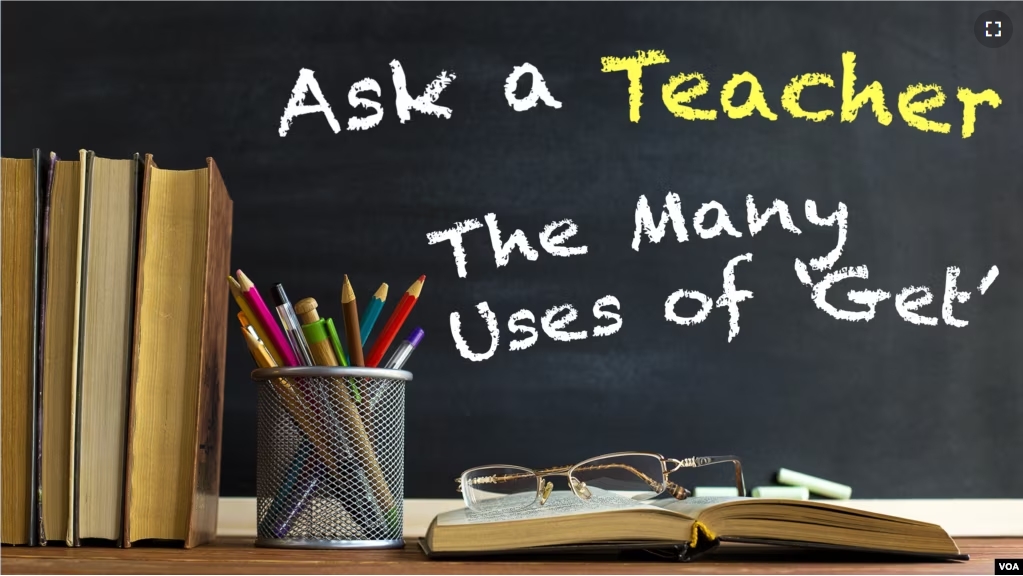Hello! This week on Ask a Teacher, we answer a question about the use of the word “get.”
Question
Hello,
I would like to know more about the use of the word “get.” Over time I have realized that it is an important word used in different ways, but I would like a clearer and broader explanation about its use. Could you explain more about this word, please? Thank you very much.
Regards,
Mireya
Answer
Thank you for writing, Mireya. This is a good question.
“Get” is the most common verb in any situation, and it is around the 40th most used word in the English language. In speech, “get” is used almost once per minute on average.
So, your interest in it is well placed.
VOA Learning English has explored “get” several times.
In an earlier Ask a Teacher program we discussed the difference between “take” and “get.” And in an earlier Everyday Grammar program we discussed that “get” can be used with the passive voice although it is rare.
We also discussed many meanings of “get” in another Everyday Grammar program. We shared that “get” has more than 50 uses, and it appears as part of at least 12 phrasal verbs or other expressions.
In earlier programs, we discussed meanings of “get” such as understand, know, obtain, receive, feel, become, buy, fetch, location, and its use to express impatience or frustration.
As you can see, there is a lot to know about “get.”
Examples of “get”
Here is some additional information about the use of “get.”
“Get” is extremely common in spoken language, but it is rare in written language. Careful writers avoid “get” because it is usually informal.
“Get” is often used with subjects that are not living things. This is important because most verbs in speech are used with animate, or live, subjects.
“Get” is the second most common verb used with “do” to demonstrate special importance or difference. For example:
She finally did get better.
There is the structure “get” + adjective presented in the Everyday Grammar program. Adjectives used with “get” describe physical and mental changes.
The most common adjective used with “get” is “worse.” Other common adjectives include “older” and “better.”
In addition, “get” is often used with adjectives to describe an increasing amount. The most often used phrases for this use are
get worse and worse and get bigger and bigger.
We should explain one final use of “get.” Some words are used in a fixed series in English. “Get” is used in many fixed series of words in spoken English. They are:
I’m going to get
You’re going to get
I’ll have to get
You can get a
I haven’t got a
I haven’t gotten any
You’ve got to
If you’ve got a
If you/I can get
get on with it
get rid of it
got a bit of
I got one of them
haven’t got a clue
Please let us know if this explanation has helped you, Mireya.
Do you have a question about American English? Send us an email at learningenglish@voanews.com.
And that’s Ask a Teacher.
I’m Gena Bennett.
Gena Bennett wrote this lesson for VOA Learning English.
________________________________________________
Words in This Story
frustration—n. a poor feeling from lack of solving a problem
